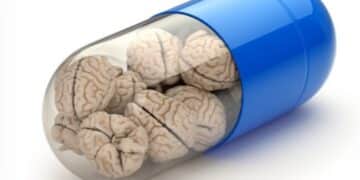Getting babies screened for diseases is extremely important to avoid future complications. There are many screening tests that you can go for, but one test that you should not miss is the newborn metabolic screening. It detects if your baby has any metabolic disorder. It’s possible that you have heard about it for the first time and want to know more about it. In that case, the following list of questions and answers will help you immensely. Read on—
Newborn Metabolic Screening— what is it?
The Newborn Metabolic Screen (NMS) is a special test that can be used to screen your baby for serious medical conditions. This test is designed to detect babies with certain disorders before they become severely sick with them. This test is done to help them get the best treatment possible.
Is it right to call this examination the “PKU Test”?
A newborn screening test is sometimes referred to as PKU testing, but this is an obsolete term. The first newborn screening ever done was for Phenylketonuria and was in the 1960s, hence the name PKU test. However, many additional conditions were added to the test ever since. It should therefore be called the Newborn Metabolic Screening test.
How is this test conducted?
You can perform the Newborn Metabolic Screen by poking the heel of the infant for a little blood which is put onto a specialized filter paper. After drying, the collected sample is sent to the lab for further examination.
After the baby has been fed for 24 hours, the first test should be taken.
Get a second screening at your paediatrician’s office to help detect disorders that might not have been diagnosed.
To identify those babies at greater risk for developing a medical condition, the lab analyses the blood if the screen indicates that your baby may have a medical condition, a member of the newborn screening team will follow up.
The professionals in charge of the examination will notify your baby’s doctor about the results.
Does the test cause any kind of harm to the baby?
A nurse or medical assistant will use small, sterile lancets to poke the heel of the baby. So, the baby will feel no pain. It may feel like a quick pinch, but it will soon go away. Keep in mind that newborn screening tests have many benefits. It is a great way to prevent learning delays and other serious health problems.
Is the baby at risk for side effects from the test?
The puncture site and heel may get infected, but the risks of this happening are really low. However, the doctor should perform the heel prick with caution.
Generally, a sterilized lancet is used on a cleaned heel. It is because of this that the chance of infection is so low.
What to expect if the baby is positive?
The lab will contact your baby’s primary care provider or paediatrician if there is a positive result. The doctor then prescribes treatment based on the problem.
Is a positive test a sign that my baby is suffering from any serious condition?
Newborn Metabolic Screening does not diagnose any disease. It is a screening test. This means that the test is designed to detect babies with a potential medical condition. A baby whose result of the screening test is positive is advised to get a follow-up testing done immediately. If the follow-up testing still indicates that there is a problem, your primary medical care provider will refer the baby to a specialist.
What to do when the follow-up test is good?
If all recommended follow-up tests are normal, additional testing is not necessary.
Does the test screen all diseases?
The Newborn Metabolic Screen does not test for certain conditions that could make your baby sick. A group of experts decides the conditions for the newborn screen. They determine which conditions can be detected from the sample and then prescribes an effective treatment. There are many conditions that can make children sick that labs are unable to detect with current newborn screening technology.
Should you get your baby tested if all of your other family members are healthy?
Yes. Newborn Metabolic Screening might show a positive result for a baby that has healthy family members with no metabolic disorders.
Some of such babies might even have healthy siblings. Normal family history doesn’t necessarily mean that the baby is healthy. And this is where people go wrong. Just because the parents and siblings of the baby are healthy, they think they wouldn’t need this screening done on the little one. Regardless of everything, you should opt for this screening to help your child lead a healthy life.
Although this is a comprehensive list of queries and their answers, there might still be some doubt in your mind regarding this screening test. In that case, you can talk to your doctor for information on this. They will help you understand its importance and will tell you what you need to keep in mind while deciding on whether or not to opt for this test.









